About Us
Youth Mental Health Re-Imagined

Heal SA is committed to eliminating the health disparities that impact youth. Our aim is to make mental wellness accessible, simple, and centred on the lived experiences of young people.
We offer one-on-one professional therapy, as well as online support, and resources – all at no cost.
MPADI MAKGALO,
FOUNDER & CEO of Heal-SA

MENTAL HEALTH CARE
Centred on the lived experiences of Black Women and Youth
Heal South Africa Together (Heal SA) is a registered national, not for profit, non-governmental organisation which aims to actively work with the community, government, and private sector to achieve the highest possible level of mental health for all. Heal SA was established in 2021 at the height of the Covid-19 pandemic, as a response to the psycho-social needs of people having difficulty coping with everyday life, and to assist persons living with psychosocial and intellectual disabilities. We do this through providing culturally appropriate free online mental health services.
Heal SA is committed to eliminating the health disparities that impact Black women and girls. Our aim is to make mental wellness accessible, simple, and centred on the lived experience of Black women. We offer one-on-one professional therapy as well online support and resources – all at no cost.
In our country, mental health has been negatively affected by the pandemic, and this comes against a backdrop of an ailing mental health care system. During the lockdown, it was evident that women and youth disproportionately bore the burden of childcare, home schooling and domestic chores. Sadly, most women found themselves vulnerable and prone to intimate partner violence, which has seen a global surge during the Covid-19 pandemic.
For women with pre-existing psychiatric disorders, the stress and unpredictability of the situation, and the serious risk that Covid-19 poses to self and family, can trigger a relapse of anxiety and depression. Psychology professionals – as part of the mental health profession and behavioral sciences, and working as part of multidisciplinary teams – ought to play a significant role in addressing the mental health ramifications of the pandemic.
The primary burden of mental healthcare falls on community-based providers, clinics, support groups, even lay counsellors and community leaders are having to step in where institutionalised help is not available. Only 27% of South Africans reporting severe mental illness ever receive treatment. This means that nearly three-quarters of these sufferers are not accessing ANY form of mental health care at all.
Heal SA seeks to respond to these needs through providing free, quality, professional and accessible mental healthcare to women and youth in Gauteng province and promoting the value of mental health through storytelling and public awareness campaigns led by beneficiaries of mental health care services.
OUR PROFESSIONAL TEAM
Meet the Heal-SA Leadership Team
At Heal SA, we believe that it is important for clinicians to have a mixture of clinical skill and humane qualities. You can place your trust in them to engage with you with the greatest level of compassion.

Mpadi Makgalo
Founder and CEO
Mpadi is passionate about diversity, equity and inclusion and making mental health services relevant and accessible for women and youth in Africa. Mpadi is committed to eliminating the health disparities that impact Black women and girls and aims to make mental wellness accessible, simple, and centred on African women’s experiences. Mpadi has over 18 years of experience in non-profit administration and planning, sustainable development, corporate social responsibility, public-private partnerships, business development and social impact. She received a bachelor’s degree in Sociology (Hons.) from Nipissing University (Canada), and master’s degree in Health Education from the University of Sussex (UK). She is currently training to be a life coach with Heal Your Life South Africa. She is a fellow of the African Leadership Initiative (Aspen Global Leadership Network) and a member of the African Leadership Network.

Betty Serame
Director
Betty Serema is an accomplished academic specializing in Gender Studies and Research, with a particular focus on the challenges faced by African girls heading child-headed households, those displaced, and those caught in child marriages. She has presented her research at numerous national and international conferences and conducted a media briefing on Child Marriages with ENCA. Betty is deeply committed to raising awareness about gender disparities, gender-based violence, mental health issues, and other social problems affecting children, adolescent girls, and women. She actively engages in community projects related to women’s issues, has facilitated programs on HIV/AIDS, and conducted workshops on trauma management and abuse. With degrees from Dalhousie University (Canada), Saint Mary’s University (Canada), and the University of Toronto (Canada), including a Master’s in Gender Studies, Betty is a member of various associations and forums dedicated to gender studies and community support, demonstrating her unwavering commitment to gender equality and social justice.

Phumla Tricia Ntleko
Stakeholder Engagement and Counselling Service Coordinator
Phumla Tricia Ntleko is a dedicated educator and community builder with a passion for youth development and holistic wellness. A graduate in Adult Basic Education and Training from UNISA, she is also qualified in Facilitation and Assessor programs from REATS Academy.
Currently a final-year B.Ed student majoring in Life Orientation (Psychology) and Languages for Senior and Further Education and Training, Phumla brings over five years of experience as an Apprentice Teacher. She has hands-on expertise in learner profiling, counseling, career guidance, gender advocacy, nutrition, remedial work, social welfare, and screening.
As a Mental Health Care Support Worker, she champions diversity, equity, and inclusion by advocating for accessible mental health services for high school learners, students in higher education, and marginalized out-of-school youth. Phumla is also actively involved in youth development and mentorship programs, focusing on personal and professional growth as well as academic guidance.
A highly motivated mother with strong organizational skills, Phumla is committed to empowering communities and ensuring opportunities for growth and wellness for women and youth.
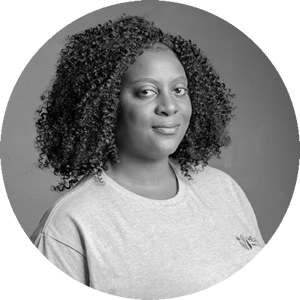
Mpho Mahalika Mkhize
Administrator / Campaign Coordinator
Mpho Mahalika is a dynamic and compassionate health advocate for South Africa, dedicated to spreading awareness about critical health issues. Her expertise spans HIV/AIDS and COVID-19 within the APACE and ADAPT promgrams under PEPFAR and USAID, where she educates communities on prevention, treatment, and management. She’s also a strong advocate for Pre-Exposure Prophylaxis (PrEP) and Post-Exposure Prophylaxis (PEP), empowering individuals to make informed decisions about their health within the Department of Health (Gauteng and Mpumalanga). With a background in logistics at Comair LTD and various health sectors (NPO, NGO, DoHand MEDICO service providers) Mpho brings a unique blend of skills to her advocacy work, including logistics coordination, data analysis, and administration. As a seasoned professional, she’s proven her ability to lead and manage teams effectively, making her a valuable asset in the health industry. Through engaging talks and campaigns, Mpho aims to capture the hearts and minds of Global World fostering a culture of health and wellness.
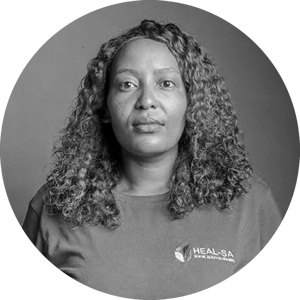
Mosima Angelina Ralebipi
Social Worker
Mosima Angelinah Ralebipi is an experienced and dedicated Social Worker with over five years of professional experience in the public welfare sector. She holds a Bachelor of Social Work degree from the University of Johannesburg, where she developed a strong academic foundation in psychosocial support, child protection, and community development. Her career has been marked by a deep commitment to serving vulnerable populations, particularly children, youth, and families facing socio-economic and emotional challenges.
Mosima began her practical journey through a volunteering internship with Afrika Tikkun, where she gained valuable hands-on experience in community outreach, youth empowerment, and support services. In her role within the Department of Social Development in the Gauteng Province, she has consistently demonstrated expertise in case management, foster care, trauma-informed interventions, and group facilitation. Her work spans across Micro, Mezzo, and Macro levels, involving direct client support, stakeholder engagement, program implementation, and community mobilization.
With a compassionate approach and a strong sense of professional ethics, Mosima is passionate about promoting mental health, resilience, and social justice. She is known for her ability to build trust with clients, develop impactful intervention plans, and contribute meaningfully to multidisciplinary teams.

Phindile Mabaso
Auxilliary Social Worker
Phindile Mabaso is a passionate Social Auxiliary Work student at the University of South Africa, currently completing her practicals at Heal SA. With a strong interest in mental health and community well-being, she is committed to addressing social challenges and uplifting vulnerable populations.
Her hands-on experience at the Department of Social Development have deepened her understanding of child welfare, early intervention, and holistic community development. Phindile brings empathy, dedication, and a proactive spirit to her work, aiming to make a lasting impact in the lives of those she serves.
As she continues her journey in social work, Phindile remains focused on advocacy, empowerment, and building resilient communities across South Africa.
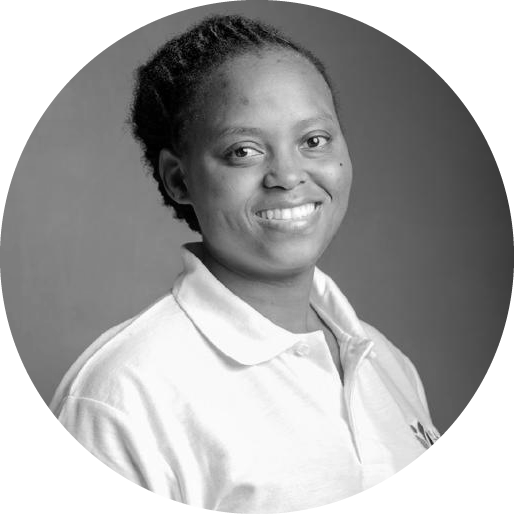
Nompumelelo Shady Mtshali
Social Worker
A dedicated, selfless, and compassionate individual raised in the spirit of Ubuntu, Nompumelelo is deeply family-oriented and recently qualified as a social worker from North West University. With a strong passion for empowering vulnerable populations and promoting social justice, Nompumelelo brings both academic expertise and a genuine commitment to community well-being.
Equipped with a solid academic foundation in social work, Nompumelelo has developed a deep understanding of the complex social issues affecting individuals and communities. Through studies and practical experience, Nompumelelo has cultivated exceptional interpersonal and communication skills, fostering strong and meaningful relationships with clients, colleagues, and stakeholders.
Driven by purpose and values, Nompumelelo is eager to apply their knowledge and skills to make a lasting positive impact in the lives of individuals, families, and communities.
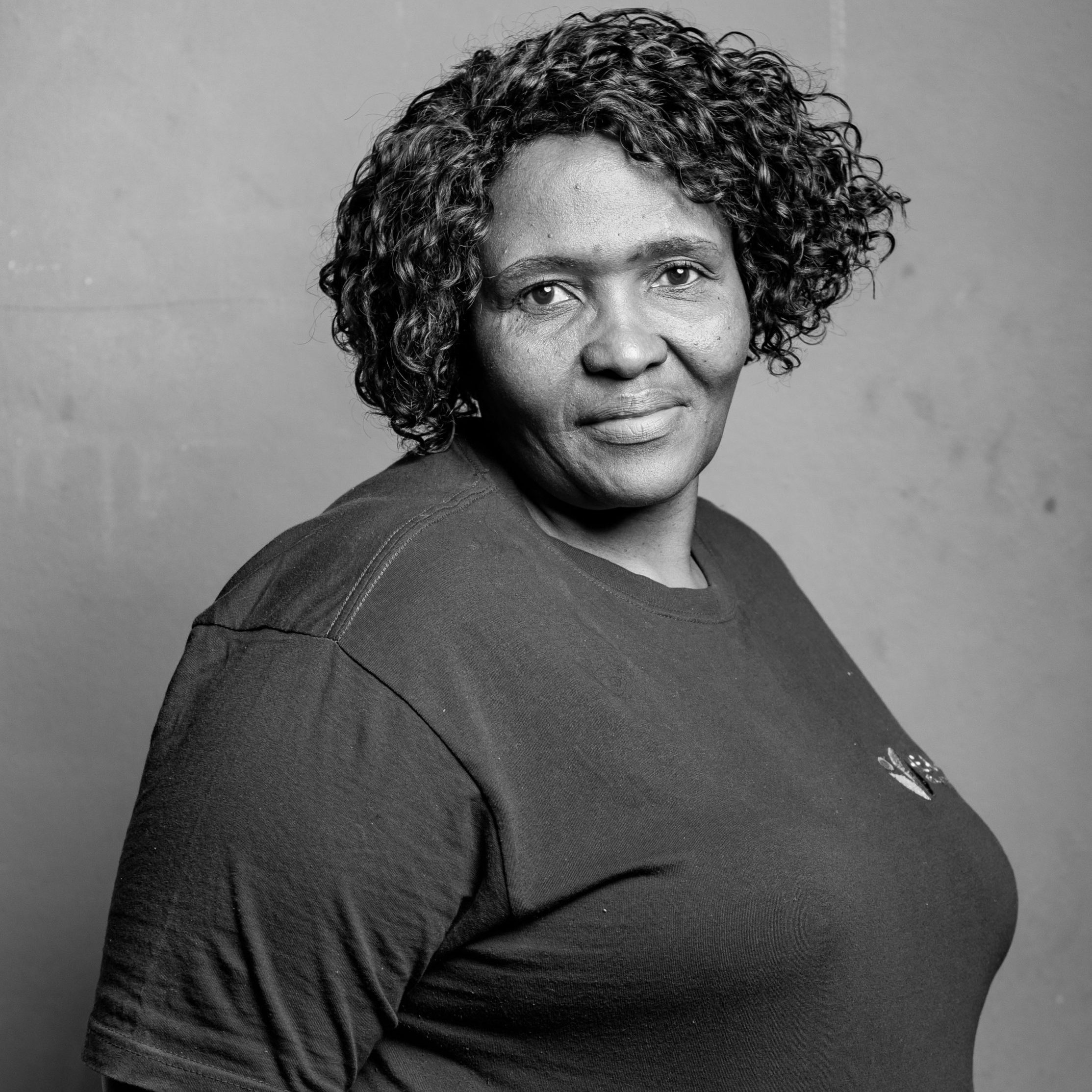
Nombulelo Hellen Kubheka
Social Worker
Nombulelo Hellen Kubheka is a dedicated social worker with over six years of experience, passionate about empowering individuals to become agents of their own growth and healing. She holds a Bachelor of Social Work degree from the University of South Africa, where she majored in Social Work and Criminology.
Her professional journey began at FAMSA Boksburg, where she also completed her practical training as a student. Nombulelo later served as a Shelter Coordinator for survivors of Gender-Based Violence, providing victim empowerment services and critical support. She went on to work at the Ntabiseng Thuthuzela Care Centre through People Opposing Women Abuse (POWA), where she rendered trauma containment, counselling, and skills development services, as well as facilitated therapeutic group sessions for survivors of sexual trauma.
With a strong commitment to advocacy and holistic care, Nombulelo continues to dedicate her work to fostering healing, resilience, and empowerment for vulnerable individuals and communities.
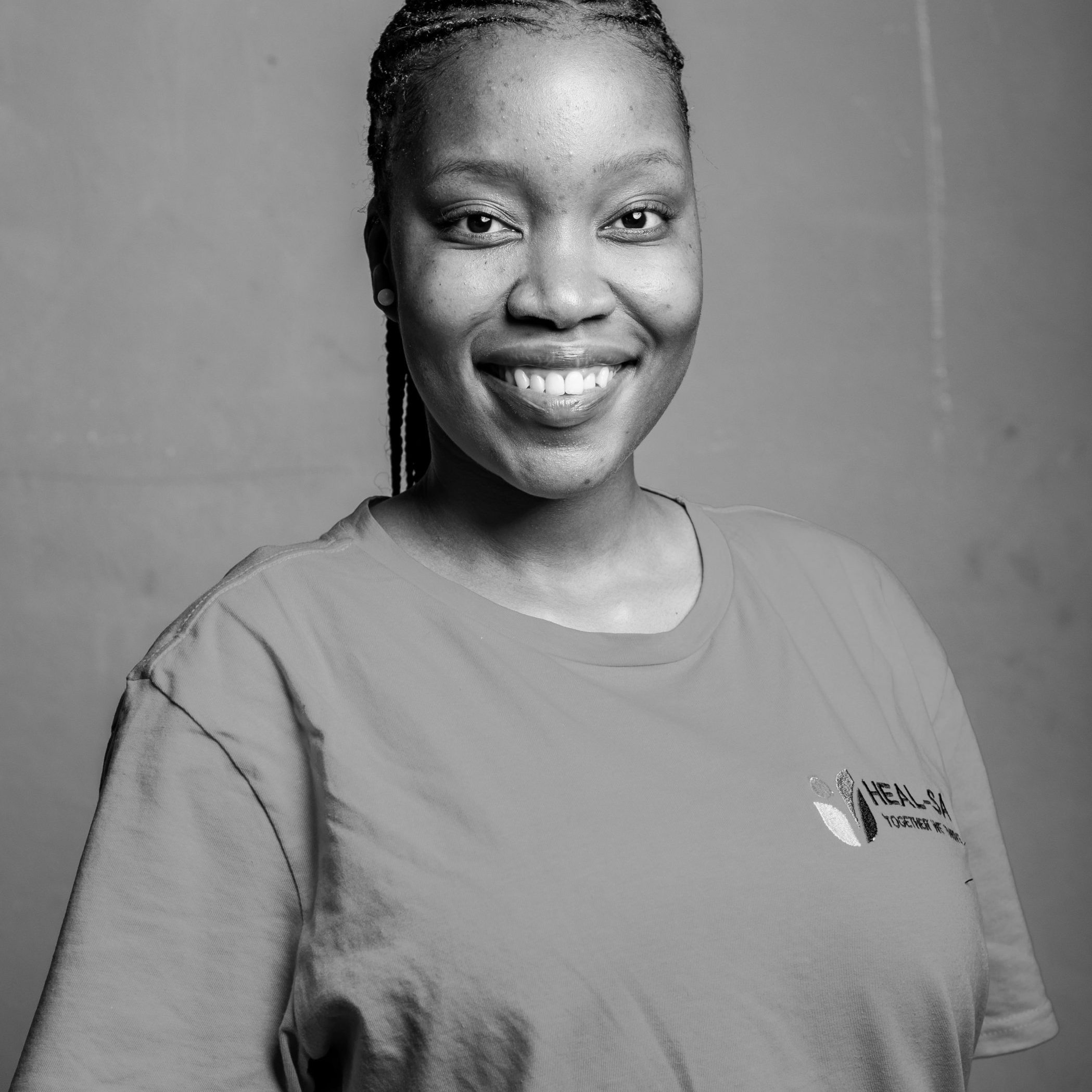
Karabo Mathebula
Social Worker
Karabo Mathebula is a Bachelor of Social Work graduate from the University of Johannesburg, passionate about advocacy, empowerment, and social change. With experience in counselling, community outreach, and youth development through roles at Abraham Kriel Bambanani and as a high school Discipline Officer, she is dedicated to connecting individuals with essential resources and fostering environments that promote growth, well-being, and resilience.

Phumla Mqombothi
Auxiliary Social Worker
Phumla Mqombothi is an experienced community caregiver and professional Social Auxiliary Worker with over five years of experience. She is deeply passionate about mental health and driving positive social change within communities.
Her work at the Khanya Family Centre Organisation has focused on supporting orphaned and vulnerable children, while also championing accessible mental health services for high school learners and young adults. Phumla is committed to facilitating awareness programs on behaviour change and engaging with diverse stakeholders to advance a shared vision of social transformation.
Dedicated to promoting mental health and community well-being, she continues to play an active role in fostering resilience, equity, and empowerment in the communities she serves.
CHALLENGING STIGMA
Dismantling inherent cultural biases
Heal SA acknowledges the cultural stigma surrounding accessing mental health services in African communities whereby asking for help is viewed as a sign of weakness or a deeply troubling character flaw. Instead of turning to therapy, most people suffer in silence and continue to live in a world that still stigmatizes race and gender, as well as sexual orientation, class, age, disability, economic status, and other social distinctions. The idea of resilience becomes not only harmful, but a form of unwanted emotional labour.
A plethora of reasons, including inherent cultural biases, routinely prevent members of the black community from seeking professional help. For the very few that overcome these cultural impediments, cannot enlist mental health professional services due to access and affordability. Not only are MHC facilities physically and institutionally inaccessible, the lack of cultural sensitivity and inclusivity, continues to present a real challenge.
To educate the broader public around the benefits and crucial need for integrating mental health into development paradigms, Heal SA provides Mental Health-related Webinars and Mental Health Workshops and Training to NGOs and other stakeholders on a regular basis.

